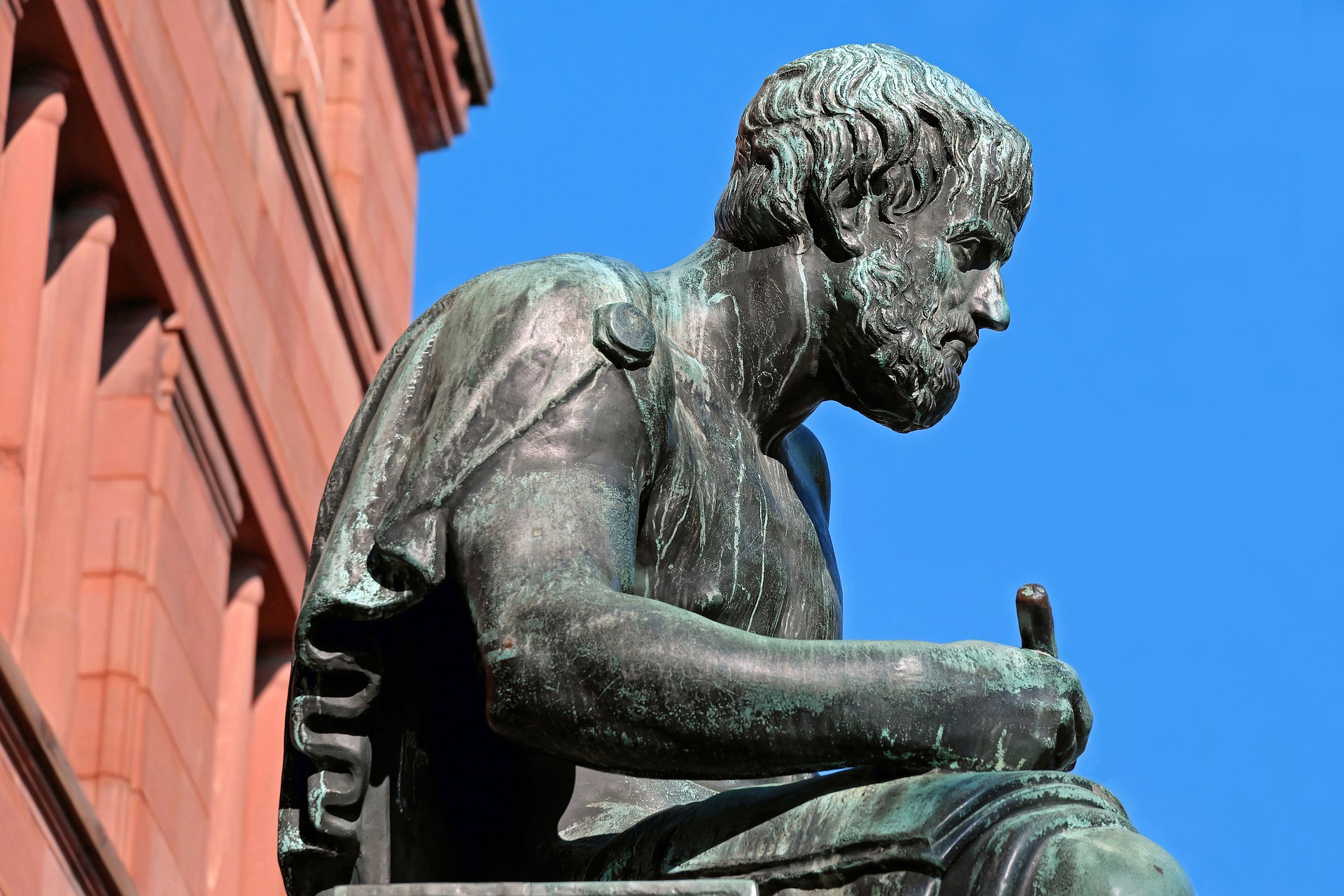The beauty of the utilitarian theory of philosophy is that it puts every person on an equal footing, and evaluates happiness on a scale to maximize it for everyone. It is the epitome of practical ethics. Seeking to answer the question, “How should one act?”, the theory states that an action is right or wrong to the degree that it tends to promote happiness. When a choice between two pleasures must be made, the higher of the two becomes the moral choice.
“The utilitarian doctrine is, that happiness is desirable, and the only thing desirable, as an end.”
Because men act in pursuit of happiness, there must be a hierarchy of happiness and pleasure, from which we can determine which pleasures are basic needs and which are less vital. Mill does say that the most basic needs are for food and security, so we shall consider these to be the very basic needs and pleasures in this theory. Having our basic food, clothing, and shelter needs/ pleasures provided (the first two levels), what should be the next level? As we will see, education, self-reflection, and thought will all play a large part in determining that answer.
Historical Context
Many of the philosophers and texts we’ve discussed recently have embodied Enlightenment ideals of rationalism, reason, and a rejection of spiritual or supernatural sources as truth. However, as we leave the Romantic era (about 1790 – 1837) and continue through the Victorian Era (1837 -1901), the pendulum of popular taste swings back to the exploration of emotion, introspection and imagination embodied by those Romantic years. Where the Enlightenment valued reason, science, and empiricism, Romanticism embraced the concepts of beauty, spiritual transcendence, emotion, introspection, the personal or individual, and the imaginative.

Under Queen Victoria’s reign, the British empire swelled, as did literacy, city living, commerce and trade. With this abundance came increased sensibilities of caring for the less fortunate, the virtue of thriftiness, and a personal sense of morality. Honesty and hard work were valued. Greed and exploitation were disdained. Mill’s Utilitarianism, written in 1861, rests in the midst of this cultural revolution, calling attention to the need and value of introspection, individual ethics, and the individual in society.
Legacy
Mill’s legacy is his championing of the rights of the individual. He was among the first to advocate for women’s suffrage and their rights to an education, and, most often, for defending the notion that all lives are of equal value. He is remembered as one of the greatest thinkers on social and political theory.
Utilitarianism values everyone’s happiness equally. This philosophy has been chiefly influential in law, government, politics, and, of course, philosophical disciplines. Today, we acknowledge that there is no legal or moral provision for valuing any one life above another. However, at the time it was introduced, this idea was novel, and cause for concern in some better-heeled circles. Master’s lives were considered more important than slaves’, and likewise a nobleman’s life was more valued than a laborer’s. Now, especially in legal and governmental settings, most societies consider all lives to be of equal importance, and work to maximize happiness for the greatest number of people, in large part to Mill, and the other Utilitarian thinkers.
Utilitarian political thought is particularly interesting with respect to the fact that different ideas about what is best can lead to very different positions. If a utilitarian believes that government is best kept as small as possible, she might tend toward conservative politics. Similarly, if one were to hold the opinion that the government should have a role in providing care and assistance as much as feasible to its citizens, he would likely envision more liberal policies.

This wide array of opinions within the philosophy underscores the need for high quality education. Human nature, and the problems we face, are all complex. The only way to move forward and solve problems is by gathering quality information and taking action.
Learning
“It is by no means an indispensable condition to the acceptance of the utilitarian standard; for that standard is not the agent’s own greatest happiness but the greatest amount of happiness altogether; and if it may possibly be doubted whether a noble character is always the happier for its nobleness, there can be no doubt that it makes other people happier, and that the world in general is immensely a gainer by it.” [emphasis mine].
Here Mill is addressing the objection that the standard of utility is merely hedonism; whatever gives the most pleasure is the right and moral decision. His qualification on happiness, though, is that it is the happiness of the greater, general community which must be considered, not simply individual pleasure. This is followed by his assertion that utilitarianism can only be accomplished by creating and stoking this higher, noble desire in everyone in the community, requiring a training of character and education.
“Utilitarianism could only attain its end by the general cultivation of nobleness of character, even if each individual were only benefited by the nobleness of others, and his own, so far as happiness is concerned, were a sheer deduction from the benefit.”
“Better to be a man dissatisfied than a pig satisfied, better to be Socrates dissatisfied than a fool satisfied.”
In order for a system predicated on a hierarchy of pleasures to work, the people would need to be educated to even understand the appeal or benefit of delaying immediate, lesser pleasure, for a later, great pleasure. This is a call for generalized education, not something reserved for the elite or powerful. In order for a populace to make moral decisions, you must educate the populace. If the people are unaware of higher pleasures, or cannot see the value in them, the system breaks down. We stated earlier that the person who has experience or knowledge of both is the person most capable of making a moral decision, but again, that depends on the individual having experienced the higher and lower pleasure. Our takeaway for learning, is therefore, that education must be widespread, common, and cultivate a taste and preference for the higher faculties and pleasures.

Relationships
Mill writes that society depends on man’s understanding of reciprocity. This is the expectation that good is to be returned for good, and evil for evil. Further, we understand that evil should not be returned for good, nor good for evil. This give and take is the basis of a working, healthy society, and when it is violated, we take action to correct or avoid those situations. For example, how would you respond to someone who repeatedly asks to borrow money, but never pays you back? We consider them unjust, and don’t continue to do good while it goes unreturned.
“The important rank, among human evils and wrongs, of the disappointment of expectation, is shown in the fact that it constitutes the principal criminality of two such highly immoral acts as a breach of friendship and a breach of promise.”
He even goes on to say,
“[F]ew wrongs are greater than this withholding of good.”
This give and take extends to society at large. We implicitly agree to abide by the laws upon which society agrees, and submit to fines, jail time, suspensions of privileges, etc, when found in violation of said laws. The justice system exists to avenge evil, and reward good, and when it fails to do so, it falls to the people to take steps to correct the issue.
A healthy society, then, depends on an educated populace, who are actively engaged in their communities.

Leadership
“On a question which is the best worth having of two pleasure, or which of two modes of existence is the most grateful to the feelings, apart from its moral attributes and from its consequences, the judgment of those who are qualified by knowledge of both, or, if they differ, that of the majority among them, must be admitted as final.”
It would seem that the person in Mill’s system most fit to lead are the elders. As Mill states, the person best equipped to judge between two conflicting pleasures is the one who has experienced them both. To take this idea further, it would follow that the persons most fit to lead their communities are those who have acquired the most experiences in life. I find it interesting that Mill bases this on experience, rather than age. It could be reasoned that a younger person who has traveled or gathered whatever relevant experience may have more experience and wisdom than someone who has lived more years, but not gained many experiences. It can certainly be true. Mill himself traveled and worked from the very young age of seventeen. Perhaps his own experiences colored his thinking in this regard.
The elevating of higher pleasures reinforces those ideals to the community. When we place a higher value on benevolence and efforts to build bridges than on individual success or pleasures, we show the community what they should value. When we place a higher value on education, medicine, and an ability to think well than on entertainment or physical efforts, society improves. We become what we focus on. If we place our attention on worthless, mindless things, we will reap those attributes in our lives. When we turn our attention to learning about loftier subjects, we will benefit from those higher ideals.
A common criticism of Mill’s theory is that it is idealistic; that it fails to acknowledge the laziness or wickedness of which humans are capable. The solution which Mill provides, education, is not unlike our current solutions to these problems. In areas where there is little opportunity for gainful employment, we bring education and empowerment to create jobs and positions of responsibility. “Idle hands are the devil’s playground,” as the quote goes. By prioritizing education, and emphasizing the greater good to be found in pursuing higher pleasures (building up the community, forming strong rewarding relationships, attaining self-fulfillment), society improves itself. We are seeing it work in America, and in formerly troubled areas around the world. Education, simply put, provides awareness, opportunity and the confidence for individuals and society to all succeed.
The healthy society, in summary, is the educated, civically engaged community, which values insight and wisdom from those with pertinent experience.
Ed. note: This is the twenty-fourth post in a series looking at the three schools of philosophy for perspectives on navigating our modern world. Inspired by Emerson’s “The American Scholar,” we are exploring timeless wisdom which endures to inform our approaches to learning, relationships and leadership.Click here for all the posts in this series.




